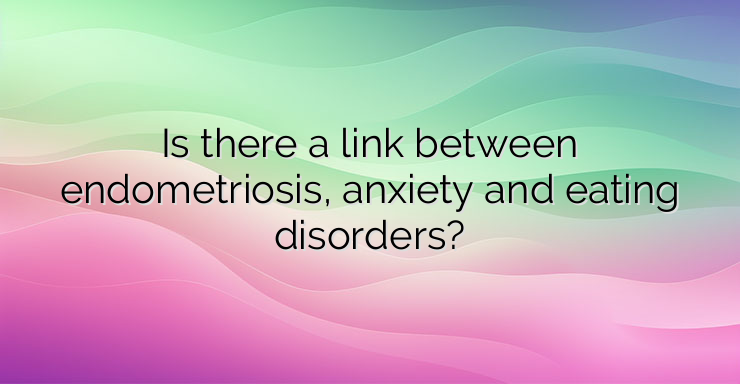Endometriosis is a systemic disease that affects not only the pelvis, but the entire body. The disease is an extremely painful condition in which tissue similar to the lining of the uterus (endometrium) grows outside the uterus. It manifests itself in a wide range of symptoms, including pain in the pelvis, abdomen and lower back, heavy bleeding, painful intercourse, painful urination and defecation, constipation or diarrhoea, bloating, nausea, fatigue and infertility. Endometriosis affects one in ten women of reproductive age worldwide. The largest study to date of psychiatric comorbidities shows that depression, anxiety, and eating disorders are not due to endometriosis pain, but have their own underlying genetic mechanisms. According to Yale School of Medicine graduate Dr. Taylor, it’s not surprising that having a genetic predisposition to endometriosis can involve genetic changes that affect other parts of the body. Lead researcher Dr. Polimanti, associate professor of psychiatry, found that the relationship between endometriosis and mental health is more complex than previously thought, and that the biological basis is not just chronic pain. Dr Kohler, a postdoctoral fellow in computational genomics, said: “For a long time, researchers thought it was just a gynecological disease – that it didn’t affect anything other than female reproduction, and so women were often only treated when they were infertile, but we have to admit , that the effects of endometriosis extend far beyond reproduction.” Dr. Taylor’s research over the past decade has focused on the systemic manifestations of endometriosis in various organ systems, including the brain. By studying animal models, his work has found that mood disorders in endometriosis are a component of the underlying pathophysiology of the disease. “We clearly show that the disease causes changes in the brain that lead to anxiety and depression,” says Dr. Taylor.In this new study, the Yale research team obtained data from the UK Biobank, which included more than 8,200 patients with endometriosis and another 194,000 without. First, they examined whether depression, anxiety, and eating disorders were more prevalent in women with endometriosis, taking into account chronic pain, socioeconomic status, age, body mass index , taking various medications and concomitant diseases. They found that having endometriosis significantly increased the risks for these three mental conditions. The team then obtained the underlying genetics of that association. Through genetic correlation analysis, they found a significantly high genetic correlation between endometriosis and each of the three diseases. They also conducted pleiotropic analysis to identify shared genetic variants. This analysis revealed a variant called DGKB rs12666606 shared between endometriosis and depression. It is a gene that is highly expressed in many areas of the brain,as well as in female reproductive tissue, says Dr. Kohler. The team hopes that their current study will help raise awareness of the lesser-known, widespread manifestations of endometriosis. It’s important to know that there is a shared risk of endometriosis and mood disorders, the researchers point out. References: https://jamanetwork.com/journals/jamanetworkopen/fullarticle/2800556


Leave a Reply